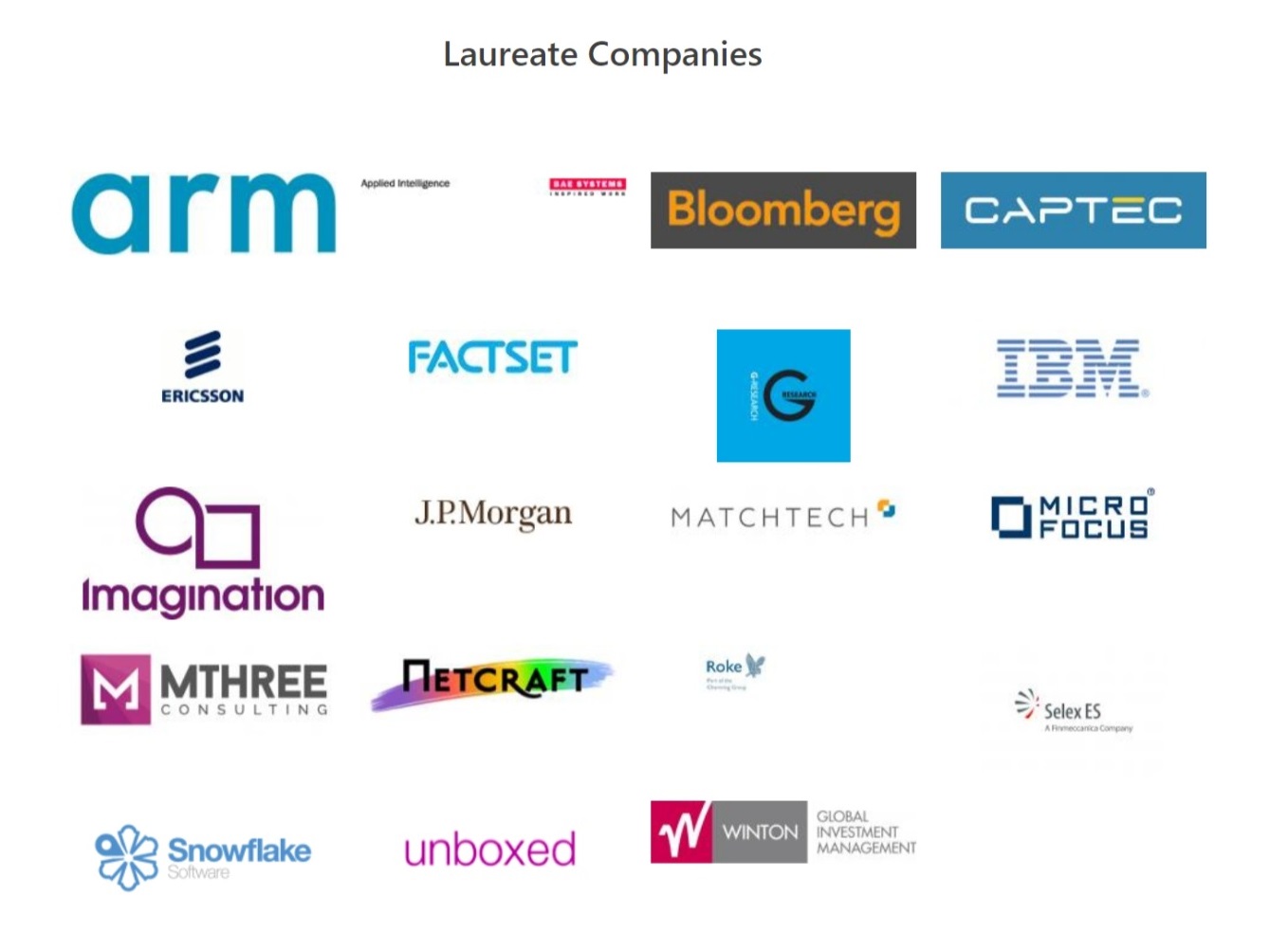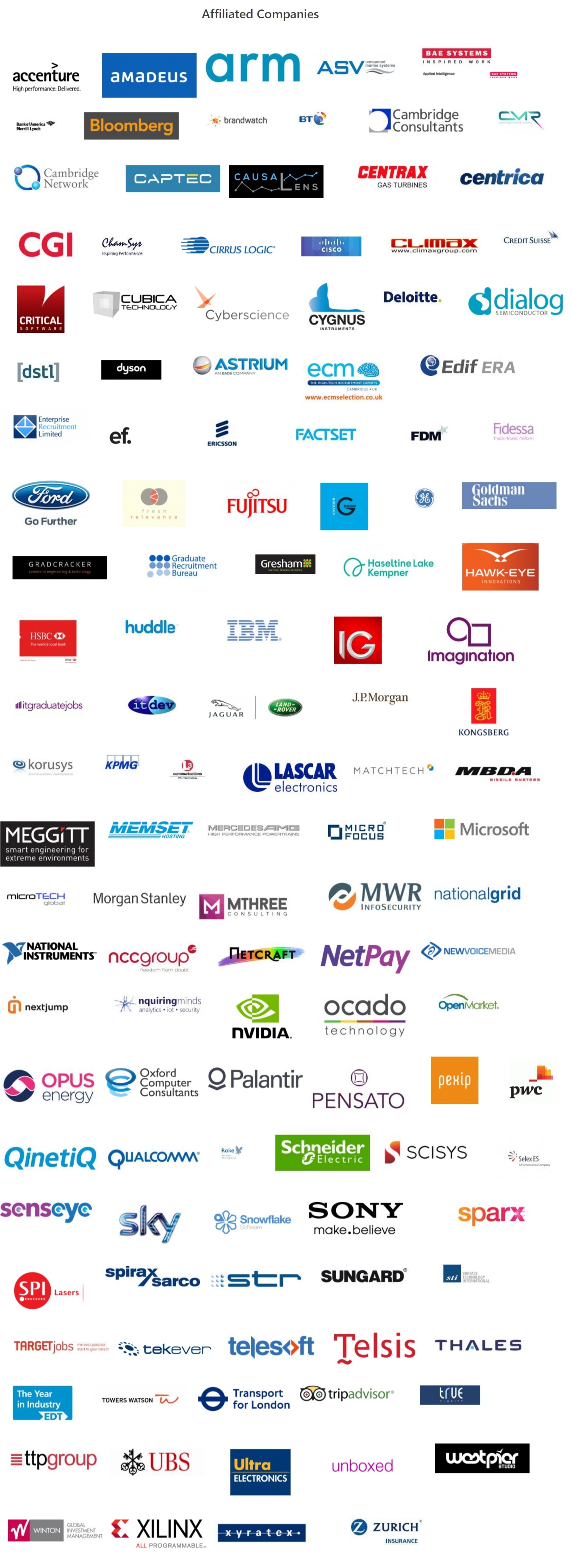Members of the Tony Davies High Voltage Laboratory came together to celebrate the spirit of Christmas with a delightful dinner. In a heart-warming gathering, lab members shared laughter and camaraderie over a festive feast that reflected the holiday season's warmth and unity. This cherished tradition not only reinforces the strong bonds within the lab but also reminds everyone of the importance of togetherness during this special time of year.


ECS student Michael Penston was awarded the British Empire Medal after helping start a COVID-19 vaccination programme at the Southampton University Health Centre during the pandemic.
Fourth-year student Michael, 21, was only 18 years old when he volunteered at the on-campus GP surgery before taking over as the chief organiser of the site within six months.
During his time volunteering throughout the pandemic, the University Health Centre administered its 50,000th vaccination, serving as a hub for students and residents across Hampshire.
Congratulations also go to Professor Penny Endersby, Chief Executive of the Met Office and a visiting Professor in ECS, on the award of a CBE (Commander of the Order of the British Empire) for services to meteorology, defence science and technology.
Articles that may also interest you
Stratis Batzelis, member of TDHVL and lecturer with ECS, secured one out of 25 Early career researcher international collaboration grants available from the Engineering and Physical Sciences Research Council (EPSRC). He was awarded £160,000 to develop his research into improving the stability of renewable energy-powered networks.
Decarbonising our electric network involves massive deployment of energy resources with power electronics as grid interface, such as wind, solar and electric vehicles, but “these resources are not always behaving nicely during disturbances in the electric grid”, said Stratis. This collaboration with the National Technical University of Athens and industry partners National Grid ESO and SMPnet seeks to create a control framework for these resources with a mixed voltage/current response that is self-adapting to the grid conditions. This could, said Stratis, “serve as a universal solution that will unlock the true potential of these resources and enable high renewable integration required for achieving our net zero targets.”
The university has been very successful overall in this call, securing 3 out of 25 awards nationally. “We submitted 14 applications from the University, of which three were awarded - a success rate of over 21%,” said Raquel Meco-Melguizo, Research Funding Manager in RIS, who supported researchers with their applications.
Articles that may also interest you
The AI Safety Summit’s Bletchley Declaration stated that we must work together to ensure human-centric, trustworthy and responsible AI that is safe. Cooperation is at the heart of safe AI development, and Responsible AI UK (RAI UK) is driving cooperative action through supporting research on the technical, social, legal and ethical challenges surrounding responsible artificial intelligence both in the UK and internationally.
RAI UK is committed to working closely with academia, industry partners, civil society and policy makers to:
- Spotlight the exciting work happening across the AI ecosystem both nationally and internationally through connections.
- Galvanise and operationalise responsible AI research and innovation through collaborations.
- Identify and tackle the skills gaps in the AI ecosystem.
Our work so far
RAI UK champions a reflective, and inclusive approach to AI development. We have brought together stakeholders from industry, academia, and policy, from the UK and internationally, to create a research and innovation ecosystem for responsible and trustworthy AI that will be responsive to the needs of society.
It has been fewer than six months since we launched, and we have already:
- Consulted across the devolved nations
We have held consultations across the devolved nations, hosting town halls in Belfast, Glasgow and Cardiff, holding 16 roundtables. These sessions are crucial in helping shape the future of Responsible AI in the UK.
- Funded £1.8m of impact acceleration projects
We have already funded 7 Impact acceleration projects that will address topics such as Generative AI in teaching and learning, AI regulation, and Emotional AI standards. These projects bring together world-leading expertise from across the UK and beyond to address new and emerging challenges in AI.
- Funded £300k of international partnership projects
We have already funded the first round of the RAI UK International Partnership Scheme, enabling world-leading partnerships. This scheme provides an opportunity for UK research groups to work in partnership with the best international collaborators for research on responsible and trustworthy AI mitigating harms that arise beyond national boundaries. International partnerships are already forming with European and US centres, and we have an ambition to make these partnerships truly global through this programme.
- Provided expertise as a founding partner to the AI Fringe
Our team came out in force at the AI Fringe in November, providing expertise on topics including responsible AI research, National Security, opportunities and risks of AI for underrepresented and marginalised communities, and the future of work.
The opportunities and challenges of AI are broad. This requires continued collaboration between industry, academics and other stakeholders globally.
Professor Gopal Ramchurn: “I’m very pleased with the progress we have made in the last 6 months. We have ensured the diverse views on responsible AI from across the UK have been taken into account in shaping the programme. We had a great response during the AI Fringe and now we need to keep the momentum going to ensure we quickly address the harms engendered by current and future AI systems.”
Professor Sana Khareghani: “We are working hard to establish Responsible AI UK as a key enabler of the international Responsible AI Ecosystem and it’s been amazing to see the progress that the team has made. We are looking forward to delivering reliable and science-based advice to policy makers and industry at this time of great uncertainty around the benefits and risks of AI.”
Led by the University of Southampton, RAI UK brings together a multidisciplinary team from Queen's University Belfast, Swansea University, the University of Glasgow, University College London, the University of Nottingham, King's College London and the University of Cambridge. Working together with industry partners, governments and practitioners, we connect UK research into responsible AI with leading research centres and institutions around the world.
Current funding call: Keystone Projects
Now open for applications, Keystone Projects, our headline funding programme will help enable responsible AI to power benefits for everyday life. Working in collaboration, researchers, industry professionals, policymakers and stakeholders will drive an ecosystem that will be responsive to the needs of society.
RAI UK will fund between £2m and £3.5m at 80% full economic cost. Funding is available for up to 4 grants. Successful projects must begin by 1 May 2024 and last up to 48 months. The full call opens on November 30, and the mandatory intention to submit is 15 December 2023.
Partner Network
The RAI UK Partner Network will offer real-world perspectives on both responsible and irresponsible applications of / approaches to AI and shape understanding of the successes and failures that lead to such outcomes.
From secondments to share knowledge, experience and skills to funding challenge-led research to address emerging or urgent industry or government concerns, focusing on multi-disciplinary research approaches, the Partner Network will promote, shape and share Responsible (Research and) Innovation practices developed by RAI UK and the wider AI ecosystem.
About RAI UK
Responsible AI UK will connect UK research into Responsible AI to leading research centres and institutions around the world, delivering world-leading best practices for how to design, evaluate, regulate, and operate AI-systems in ways that benefit people, society and the nation.
Articles that may also interest you
A paper by Phichet Ketsamee, a PhD student at the Tony Davies High Voltage Laboratory, University of Southampton, under the supervision of Dr Thomas Andritsch, Prof. Alun Vaughan, and Dr Istebreq Saeedi received the Best Student Paper Award at the 2023 IEEE Conference on Electrical Insulation and Dielectric Phenomena (CEIDP).
The paper, entitled “Dielectric Permittivity and Breakdown Strength of Thermally Aged Polypropylene/Ultra-High Molecular Weight Polyethylene Nanocomposites,” was selected as one of the top five finalists for the Student Paper Award competition. It was presented in an Oral Session by Phichet Ketsamee on October 16th, 2023, as part of the Centennial edition (100 years) of the oldest conference, the IEEE Conference on Electrical Insulation and Dielectric Phenomena (CEIDP) in East Rutherford, NJ, USA.
This paper investigates the effects of thermo-oxidative ageing on polypropylene (PP) blended with ultra-high molecular weight polyethylene (UHMWPE), both filled and unfilled with magnesium oxide (MgO) nanoparticles, focusing on structural changes, chemical modifications, and dielectric properties. The study demonstrates that the addition of MgO as a compatibiliser in PP/UHMWPE nanocomposites slows down the ageing process, as indicated by a mitigated impact on thermal stability, oxidation reactions, dielectric permittivity, and AC breakdown strength when compared to unfilled PP/UHMWPE blends. The findings demonstrate the potential of the nanocomposites as high-voltage insulation materials, emphasising the significance of thermal ageing effects in long-term performance evaluation.
The CEIDP conference was established within the Division of Engineering and Industrial Research, National Academy of Sciences – National Research Council in 1920 in nearby Manhattan, NY, and continues to provide opportunity for specialists from around the world to meet and exchange their expertise, annually, now under sponsorship from the IEEE Dielectrics and Electrical Insulation Society. The goal of this annual Conference is to bring together researchers in all disciplines from industry, universities, government, and other laboratories to discuss the latest results and developments in the area of electrical insulation and dielectric phenomena. The conference location is in the Americas. Original contributions are welcomed in theoretical and experimental aspects of dielectric, electronic, and electrostatic research on vacuum and gaseous media and on liquid and solid materials of organic and inorganic origins. The CEIDP is aimed at fostering free discussion of scientific and technical topics but conference participants are expected to avoid any commercialization of their research activities or research results.